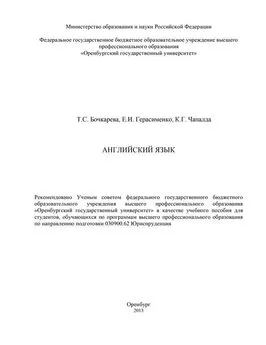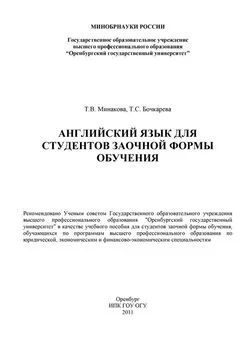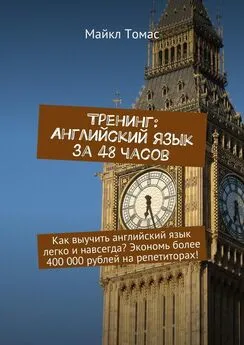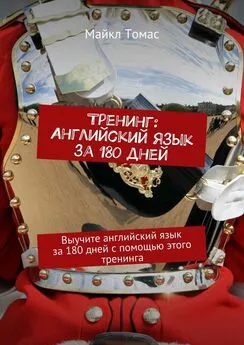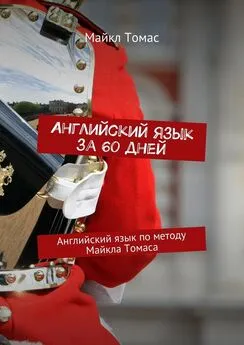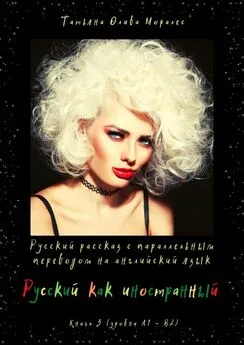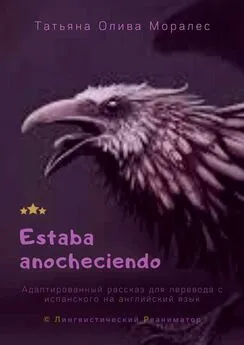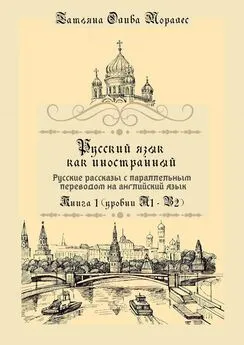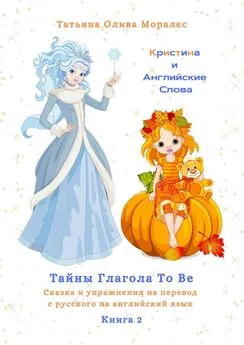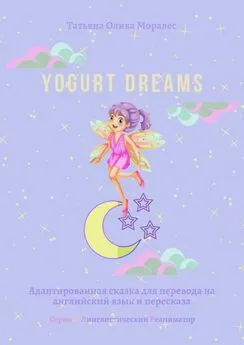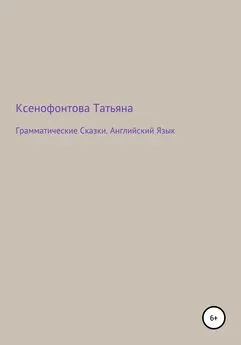Татьяна Бочкарева - Английский язык
- Название:Английский язык
- Автор:
- Жанр:
- Издательство:Литагент БИБКОМ
- Год:2013
- Город:Оренбург
- ISBN:нет данных
- Рейтинг:
- Избранное:Добавить в избранное
-
Отзывы:
-
Ваша оценка:
Татьяна Бочкарева - Английский язык краткое содержание
Английский язык - читать онлайн бесплатно ознакомительный отрывок
Интервал:
Закладка:
В английском языке всего три артикля: “a”, “an” и “the”.
Два типа артиклей:
‒ неопределенный (indefinite) – “a” и “an”;
‒ определенный (definite) – “the”.
Вам необходимо также знать, в каких случаях артикль не употребляется.
Неопределенный артикль – a/an произошел от слова «один», и поэтому употребляется только с исчисляемыми существительными в единственном числе. Употребляется в разговоре о предмете, который упоминается впервые, либо не все собеседники знают, о чем речь. А также для обозначения принадлежности предмета к какому-либо классу предметов.
Определенный артикль – “the” произошел от слова «этот» и употребляется с разными существительными. Ставится в тех случаях, когда упоминается предмет или понятие, уже известное собеседникам.
Артикли относятся к существительному, но если перед существительным стоят определения, то артикль ставиться перед всеми определениями.
Артикль может быть заменен местоимением:
‒ определенный – указательными местоимениями this, that;
‒ неопределенный – местоимением some.
Примеры
1 a pen – (неопределенная) ручка;
2 the pen – (определенная) ручка.
Неопределенный артикль не употребляется с существительными во множественном числе:
Пример – a book – books.
2.1.1.1 Дополните предложения артиклями a/an, the.
1) We usually have … lunch at 1 p.m.
2) … French people drink a lot of red wine.
3) I gave her … bunch of flowers when she opened the door.
4) Who is … owner of this car?
5) We went to … zoo and saw … old elephant.
6) I've never taught … class where … pupils were so good at … English.
7) The giraffe is … tallest animal on … Earth. I like … giraffes.
8) … water freezes after … hour if you leave it out in … garden at … night.
2.1.1.2 Выберите правильный вариант:
1) Catherine loves cats/the cats.
2) Look at cats/the cats. They are chasing a bird.
3) I don't like coffee/the coffee, but I like tea/the tea.
4) You cut the cake/cake and I'll pour coffee/the coffee.
5) Life/The life will be very different in the future.
6) Life/The life of a mayfly is extremely short.
7) I enjoy swimming/the swimming in the sea.
8) Children/The children usually like playing games.
9) Children/The children have gone to the park.
10) All people/the people in this room are my relative.
11) All people/the people should have freedom of speech.
12) Villages/The villages in this part of the country are very beautiful.
13) Breakfast/The breakfast is the most important meal of day/the day.
14) Paul was only/the only person who remembered me.
15) In Stone Age/the Stone Age, people lived in caves.
16) I would like to travel to Spain/the Spain.
17) We travelled to London by train/the train.
18) He is learning to play flute/the flute.
2.1.1.3 Вставьте артикль, где необходимо.
1. This is … clock. 2. This is … Kiev. 3. … Kiev is … big city. 4. Mary is … girl. 5. She is … my sister. 6. This is … room. 7. Is … newspaper in … bag? 8. She is in … room. 9. Is … teacher in … classroom? 10. Is … your room large? 11. Is … pen in … bag? 12. Are you … students? 13. My friend has … children. 14. … sportsmen are always in good form. 15. … children we saw in … street are schoolboys. 16. She lives in … 1st street.
2.1.1.4 Вставьте артикль, где необходимо.
1. This is … book. It is my … book. 2. Is this your … pencil? – No, it isn't my … pencil, it is my sister's … pencil. 3. I have … sister. My … sister is … engineer. My sister's … husband is … doctor. 4. I have no … handbag. 5. Is this … watch? – No, it isn't … watch, it's … pen. 6. This … pen is good, and that … pen is bad. 7. I can see … pencil on your … table, but I can see no … paper. 8. Give me … chair, please. 9. They have … dog and two … cats. 10. I have … spoon in my … plate, but I have no … soup in it.
2.1.1.5 Вставьте артикль, где необходимо.
1. This is … tree. … tree is green. 2. I can see three … boys. … boys are playing. 3. I have … bicycle. … bicycle is black. My … friend has no … bicycle. 4. Our … room is large. 5. We wrote … dictation yesterday. … dictation was long. 6. She has two … daughters and one … son. Her … son is … pupil. 7. My … brother's … friend has no … dog. 8. This … pencil is broken. Give me that … pencil, please. 9. She has … ball. … ball is … big. 10. I got … letter from my … friend yesterday. … letter was interesting.
2.1.1.6 Вставьте артикль, где необходимо.
1. This is … pen. … pen is red. 2. These are pencils. … pencils are black. 3. This is … soup. … soup is tasty. 4. In the morning I eat … sandwich and drink … tea. 5. She gave me … coffee and … cake. … coffee was hot. … cake was tasty. 6. Do you like … ice-cream? 7. I see … book in your … hand. Is … book interesting? 8. She bought… meat, … butter and … potatoes yesterday. She also bought … cake. … cake was very … tasty. We ate … cake with … tea. 9. This is my … table. On … table I have … book, two … pencils, … pen and … paper. 10. This is … bag. … bag is brown. It is my sister's … bag. And this is my … bag. It is … yellow.
2.1.1.7 Вставьте артикль, где необходимо.
1. I have two … sisters. My … sisters are … students. 2. We are at … home. 3. My … brother is not at … home, he is at … school. 4. My … mother is at … work. She is … doctor. 5. I am not … doctor. 6. I have no'… sister. 7. He is not … pilot. 8. I have thirty-two … teeth. 9. He has … child. 10. She has two … children. Her children are at … school. 11. Is your father at … home? – No, he is at … work. 12. Where is your … brother? – He is at … home.
2.1.1.8 Вставьте артикль, где необходимо.
1. We have … large … family. 2. My granny often tells us … long … interesting .. stories. 3. My … father is … engineer. He works at … factory. … factory is large. 4. My … mother is … doctor. She works at … large … hospital. She is at … work now. 5. My … aunt is … teacher. She works at … school. … school is good. My … aunt is not at … school now. She is at … home. She is drinking … tea and eating … jam. … jam is sweet. I am at … home, too. I am drinking … tea and eating … sandwich. … sandwich is tasty. 6. My sister is at … school. She is … pupil. 7. My cousin has … big … black … cat. My cousin's … cat has two … kittens. … milk, too. cat likes … milk. … kittens like.
2.1.1.9 Вставьте артикль, где необходимо.
1. I am … engineer. 2. My … son is … pupil. 3. He is … good … pupil. 4. This is … house. 5. This is my … pencil. 6. You have some … pencils, but I have no … pencil. Give me … pencil, please. 7. I like your … beautiful … flower. Give me … flower, please. 8. My … mother is at … home. She is reading … interesting … book. 9. My … father is not at … home. He is at … work. He is … doctor. He is … good … doctor. He works at … hospital. … hospital is large.
2.1.1.10 Вставьте артикль, где необходимо.
1. What's … weather like today? – … weather is fine. 2. … sun is yellow. 3. … sky is grey today. 4. … earth is … planet. 5. We had … English lesson yesterday. … teacher asked me many … questions. … questions were difficult. 6. Where is your … brother? – He is at … home. He is in his … room. He is sitting at … table. He is doing his … homework. … homework is difficult. 7. Our … cat is sitting on … sofa. 8. It is very dark in … room. Turn on … light, please. 9. Nick went into … bathroom, turned on … water and washed his … hands.
2.1.1.11 Вставьте артикль, где необходимо.
At… beginning of … 19th century … little boy was born in … family of John Dickens, … clerk at … office in … Portsmouth, and was named Charles. He had … sister who was older than himself, arid there were several other children in … family. When Charles was seven, he was sent to … school. He was not… strong child. He did not like to play … cricket or … football and spent all his free time reading. In 1821 … family went to … London and little Charles left behind him … happiest years of his childhood. His father was in … money difficulties, and … family became poorer and poorer. … boy had to give up his studios. Mr. Dickens was put into … debtors' prison. Little Charles learned to know all, horrors and cruelty of … large capitalist city. He had to go to work at… blacking factory. He worked there from … morning till … night. When his father came out of prison, Charles was sent to … school for some time. Soon he got work as … clerk. Then he learned … stenography and became … reporter; in Parliament. In 1836 at… age of 24 Charles Dick1 en? published his first book. It was … collection of … stories. … title of … book was “Sketches by Boz”. There were followed by “Pickwick Papers” and “Oliver Twist” and many other famous novels. Charles Dickens is one of … greatest writers of … 19th. century. His novels are now translated into most languages of … world.
2.2 Существительное
В первую очередь это часть речи, которая обозначает предмет. Это может быть необязательно неживой предмет (table, house), но и живое существо (girl, man). Нельзя не упомянуть, что существительные бывают не только материальными, но и абстрактными.
Love, kindness, knowledge – абстрактные существительные, те, которые нельзя потрогать или положить в карман.
Также существительные английского языка делятся на исчисляемые и неисчисляемые. К исчисляемым относятся существительные, которые мы можем посчитать.
Примеры
1 I have two toys. How many toys do you have? – I have five toys (toy – toys).
2 My friends always help me with my homework (friend – friends).
Читать дальшеИнтервал:
Закладка:
